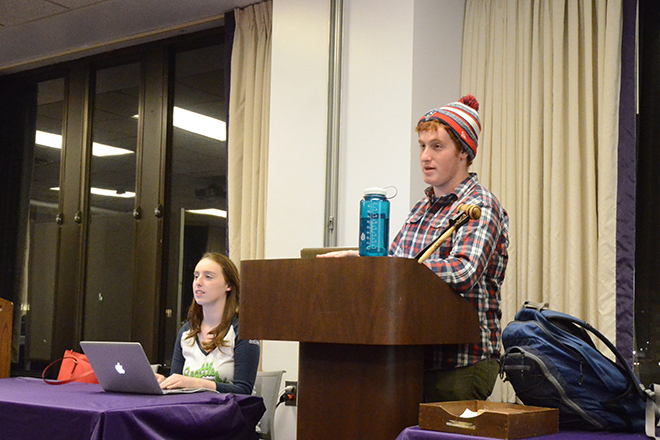Photo by Rosalie Chan / North by Northwestern
Starting next spring quarter, students living off-campus will get a chance to elect their own representatives to Associated Student Government.
The Senate passed an amendment Wednesday to add a ballot for off-campus representation to the presidential ballot in April. Currently, the off-campus student representatives are appointed.
"We have eight senators now and they have all been appointed," said Weinberg junior and ASG speaker Noah Star at ASG's meeting Wednesday. "I consider myself a staunch democrat, not in the liberal sense, and I hate the idea that we're appointing people."
Students will be able to choose if they are graduating, living on-campus or in Greek housing, or off-campus during the next school year. Those that choose off-campus will then get to vote on their off-campus representation.
The Senate also passed a few changes to election guidelines, including extending the student voting period to 24 hours and giving presidential candidates ten days to campaign.
ASG is starting to reapportion their student caucus seats, which gives student groups representation. Student groups can now apply for this representation using an application on ASG's website.
"The process is pretty similar to what it was last year," SESP senior Andrew Green said. "Applications will officially open tonight until February 18. We would spend that week interviewing those groups and make a recommendation March 14."
Additionally, student life vice president Chris Harlow said big-picture changes could be coming to university dining. The consulting group hired by Northwestern that visited ASG last week to talk about Northwestern dining will be sending out a campus-wide survey to guage interest.
"All the little things [we talked about], like avocado in dining halls – those things we will be following up with Northwestern dining to see what we can get done," Harlow said.
Parliamentarian Petros Karahalios introduced a resolution on active consent, which mimics the state of California's law requiring active spoken consent before sexual activity for college students. He said the legislation could be used as a tool by lobbyists for future laws.
